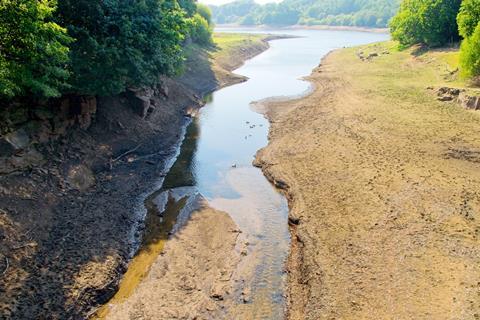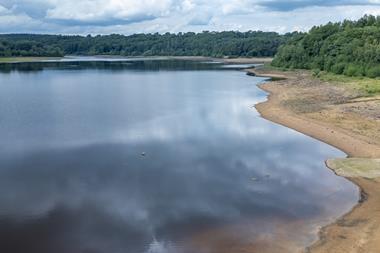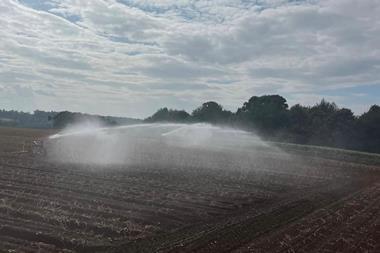
England will experience worse levels of drought next year if this winter is drier than normal, the Environment Agency has warned.
On the back of a record dry spring, and four summer heatwaves, the agency said the drought situation was “precarious” despite recent rainfall.
In its Drought Prospect Report released today, the EA analysed three different rainfall scenarios over winter and what their implications would be for water security ahead of next year’s drier months.
In its most pessimistic projection, which considered if England only received 60% of its average rainfall, the entire nation would be in drought by spring with the “potential for permanent environmental damage.”
The announcement comes two weeks after the National Drought Group warned the country needed 100% of average rainfall to recover by April.
“There will be a drought next year, unless we get sustained rainfall through the winter,” warned Helen Wakeham, director of water at the Environment Agency.
The Met Office has forecast heavy rain to last into Saturday, but indicated there was a high likelihood that dry conditions would continue through the rest of autumn and heading into January.
Should this be the case drought conditions could worsen, leading to hosepipe bans, significant pressures on the environment and a risk to crop yields.
“While it’s not possible to definitively forecast weather for the next three months, the chances of a dry period are higher than normal,” said the Met Office’s chief meteorologist Will Lang. “A more average three-month period for rainfall is still the most likely scenario.”
Read more
-
Drought to continue into 2026, Environment Agency warns
-
Dry winter is a ‘big threat’ to supply, warns leading grower
The EA has called for cross-sector collaboration including asking water companies to encourage customers to use less water and increase efforts to reduce leakages, and farmers to look at drought-resistant crops, fill their reservoirs and share water where possible.
It has also emphasised the need for additional funding to be made available for long-term research into water use and ways to forecast future droughts.
“I welcome the recent rainfall but the prolonged dry weather throughout this year continues to pose risks to public water supplies, farming and the environment,” said water minister Emma Hardy. “Climate change means we will face more frequent, severe droughts and flooding in the years ahead.”
The minister stressed the government was “taking decisive action” to mitigate threats to water security through efforts such as building nine new reservoirs and new water pipes, and working to reduce leaks.
NFU vice-president Rachel Hallos said the last year had been “extremely challenging” and this latest report confirmed “we must now fully prepare ourselves for more of the same heading into 2026 and beyond”.
“With farmers and growers making decisions on what to plant for 2026, we must try to mitigate the impacts now,” said Hallos.
She has called for more flexibility with abstraction licences so that should it rain after March next year those with a reservoir can take the water they need. She has also said tax breaks would encourage investment in water management.



















No comments yet